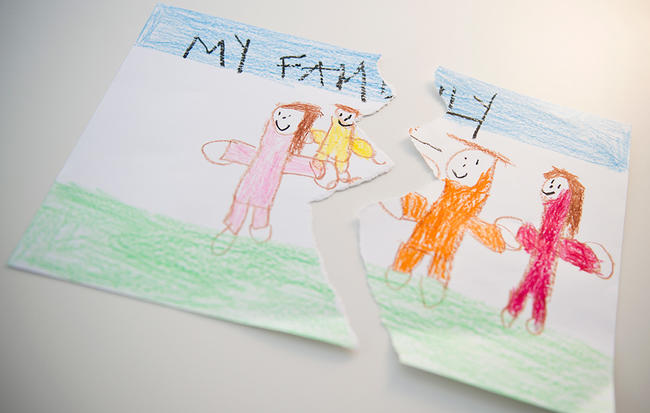You hear people blame their divorce on a myriad of things: infidelity, lack of communication, or the sense that they’re no longer in love with their partner. Career choice doesn’t usually enter the conversation—but maybe it should. Statistician Nathan Yau used data from the U.S. Census Bureau’s Five-Year American Community Survey to tease out which occupations are tied to the highest divorce rates, and he uncovered some pretty interesting trends.
Before we reveal what he found, you need to know that the average divorce rate for Americans is much lower than what’s often cited. While you’ve likely heard that 50% of all marriages end in divorce, that’s not actually the case. According to data from the U.S. Census Bureau, the real number is about 30.8%, and that includes first, second, and even tenth marriages. When it comes to first marriages, it’s probably more accurate to say that about 20-25% of them end in divorce.
With that in mind, Yau’s analysis of the link between divorce rate and profession is especially intriguing, because it seems that people who’ve opted for certain careers have a much higher than average chance of getting divorced. Here’s a look at which occupations are linked to a high divorce rate, as well as some theories about why these jobs might put your marriage at risk.

1. GAMING MANAGERS
Topping the charts for the profession with the highest divorce rate at 52.9% are gaming managers, who are hired by casinos and companies operating game rooms to interact with customers and make sure they have a fun and memorable experience.
“They work in an area that involves exposure to alcohol and interact with lots of people in a very celebratory environment, which could result in someone straying,” says Patricia M. Barbarito, a managing partner at Einhorn Harris law firm in New Jersey.

2. BARTENDERS
It may not be a big surprise that number two on the list are bartenders, at 52.7%, since they work in a similar environment to gaming managers. Their job entails late nights, lots of alcohol, and interaction with many different people. Plus, bartenders often rely on tips, so they have ample incentive to be friendly (and even flirtatious) with customers. Amy Saunders, a family law/divorce attorney based just outside Boston, says that it’s a recipe for relationship disaster.
“Bartenders listen to other people’s problems, which can open a door to an affair,” says Saunders. “When you complain about your spouse, opportunity for an affair is signaled to whoever listens, aka the bartender.” Another issue: “Most bartenders can’t leave until their last customer leaves, so they often have very little control of their schedules,” says family law attorney Allison Maxim. “It’s hard to plan time alone with your spouse with such an inconsistent schedule.”

3. GAMING SERVICES WORKERS
As with gaming managers, gaming service workers have a high divorce rate: 50.7% to be exact. Barbarito’s take is that any profession that puts you in a casino can lead to marital problems, thanks to the prevalence of alcohol plus the degree of interaction you have with gamblers. Irregular hours—including night shift work—might also pose a problem, because it makes it difficult to have a consistent life at home.

4. FLIGHT ATTENDANTS
While flying across the globe might seem like a glamorous gig, it’s also an occupation that has a 50.5% divorce rate. “Flight attendants are away often, meet many potential [affair] candidates, and don’t make time for their spouse” due to their travel schedule, says Saunders, who adds that it’s not unusual for flight attendants to have affairs with other crew members.

5. AND 6. ROLLING MACHINE SETTERS, OPERATORS, AND TENDERS (METAL AND PLASTIC); AND EXTRUDING AND DRAWING MACHINE SETTERS, OPERATORS, AND TENDERS (METAL AND PLASTIC)
Jobs in construction might not strike you as ones that point to marital trouble, but rolling machine setters, operators, and tenders have a 50.1% divorce rate, and extruding and drawing machine setters, operator, and tenders have a 49.6% chance of getting divorced. Barbarito’s explanation is that these jobs often require you to clock in at odd hours. “What strikes me about these professions is that there appears to be shift work involved,” says Barbarito. “One could speculate that the lack of a routine or schedule makes it difficult to stay connected and therefore to remain married.”












